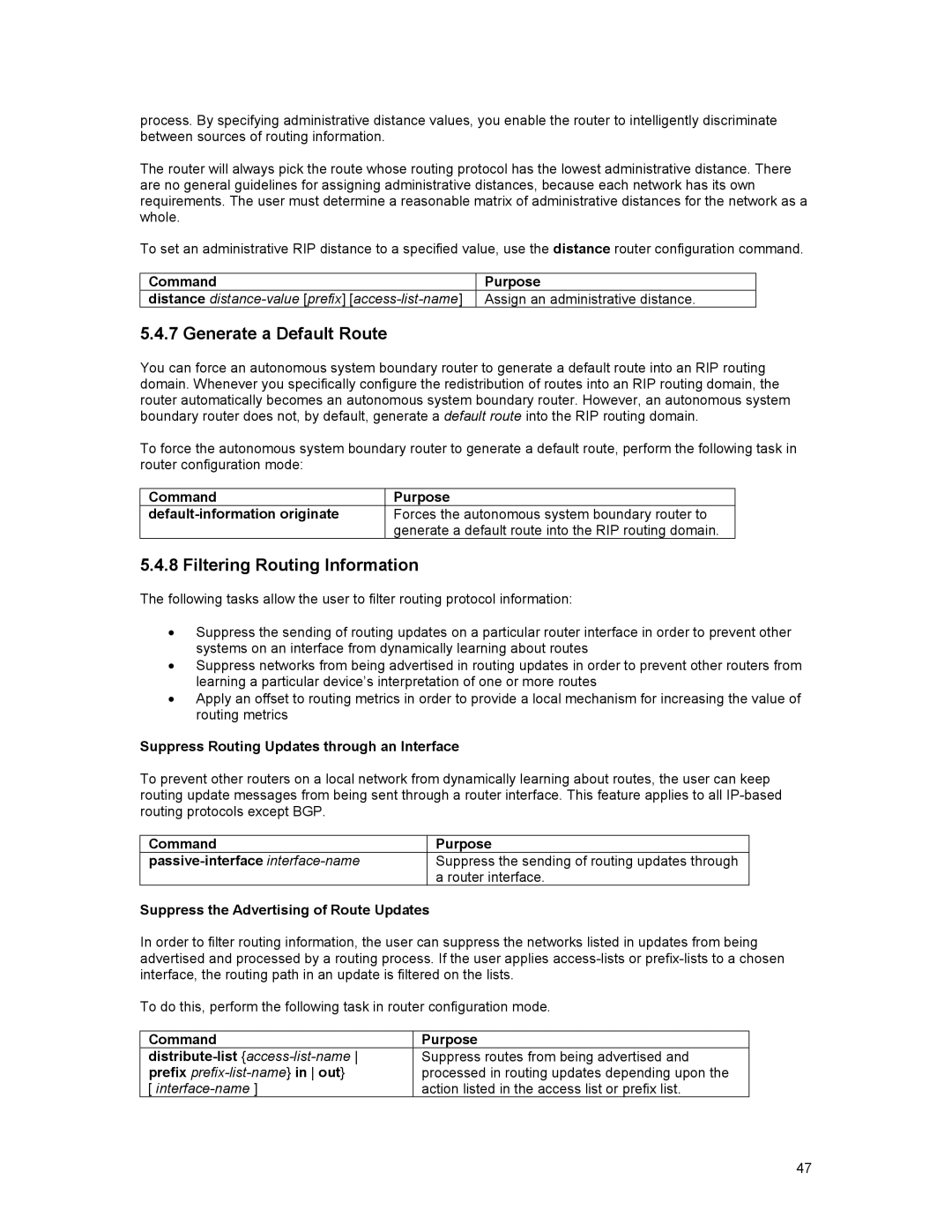process. By specifying administrative distance values, you enable the router to intelligently discriminate between sources of routing information.
The router will always pick the route whose routing protocol has the lowest administrative distance. There are no general guidelines for assigning administrative distances, because each network has its own requirements. The user must determine a reasonable matrix of administrative distances for the network as a whole.
To set an administrative RIP distance to a specified value, use the distance router configuration command.
Command | Purpose |
distance | Assign an administrative distance. |
5.4.7 Generate a Default Route
You can force an autonomous system boundary router to generate a default route into an RIP routing domain. Whenever you specifically configure the redistribution of routes into an RIP routing domain, the router automatically becomes an autonomous system boundary router. However, an autonomous system boundary router does not, by default, generate a default route into the RIP routing domain.
To force the autonomous system boundary router to generate a default route, perform the following task in router configuration mode:
Command | Purpose |
Forces the autonomous system boundary router to | |
| generate a default route into the RIP routing domain. |
5.4.8 Filtering Routing Information
The following tasks allow the user to filter routing protocol information:
•Suppress the sending of routing updates on a particular router interface in order to prevent other systems on an interface from dynamically learning about routes
•Suppress networks from being advertised in routing updates in order to prevent other routers from learning a particular device’s interpretation of one or more routes
•Apply an offset to routing metrics in order to provide a local mechanism for increasing the value of routing metrics
Suppress Routing Updates through an Interface
To prevent other routers on a local network from dynamically learning about routes, the user can keep routing update messages from being sent through a router interface. This feature applies to all
Command | Purpose |
Suppress the sending of routing updates through | |
| a router interface. |
Suppress the Advertising of Route Updates
In order to filter routing information, the user can suppress the networks listed in updates from being advertised and processed by a routing process. If the user applies
To do this, perform the following task in router configuration mode.
Command | Purpose |
Suppress routes from being advertised and | |
prefix | processed in routing updates depending upon the |
[ | action listed in the access list or prefix list. |
47
